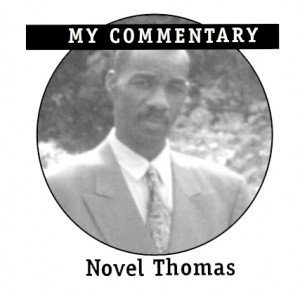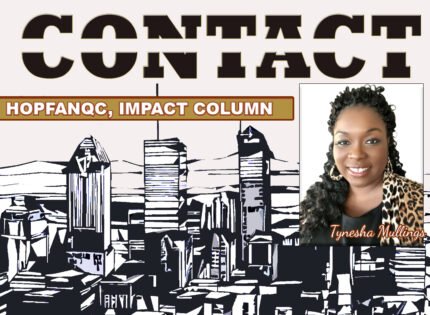 A Fractured History A Fractious People
A Fractured History A Fractious People
In a global context, our history is not about little islands in the Caribbean, each with specific and unique customs and historical facts (like the region’s multi-racial, -ethnic composition, etc.). It’s not about the South Pacific’s or India’s Andaman Islands’ African peoples. It’s not about Europe’s peoples of African heritage, or North America’s African peoples, descendants of the slaves…
Actually, our history is comprised of the totality – all those places along with (and most importantly) the primary source from which, centuries ago, our ancestors were forcibly extracted and stripped of those things that matter: freedom, identity, history…
For generations we have been trying to re-appropriate our “being” and as more and more Black scholars of history pass through the so-called New World, where Black… African history is at a premium—not yet fully embraced by the overseers of academia—but is been incrementally restored to its rightful place in the annals and bookshelves of world history.
Which is why around this time of year every year there’s (a semblance of) heightened consciousness among Black people who are truly interested in learning [our] history. After all, academia hasn’t done a good job of teaching students the complete history of the world. African history is still a novelty, not occupying much space in the [western] syllabus.
Which is why there are more Black scholars and others doing their part to make African… Black history more visible by making it their personal mission to re-appropriate and push it into every conceivable institution where learning can take place.
For example, a hip-hop historian is how a Quebec rapper, Webster describes himself, and he wants Black… African history to be more prominent…
Having studied history at Quebec’s Laval University, he now combines it with his performance craft to educate anyone and everyone who wants to be historically enlightened, and not just in February, year-round.
“I’m using hip-hop as a medium to talk about history,” he told CTV’s Quebec City bureau chief Maya Johnson in a February 17 interview and brief walkabout in the provincial Capital, where he dredges up and drops historical tidbits of the centuries-old Black African presence of the city.
Like most Black people who were educated and live here, Webster deplores the fact that most of what he learned about Quebec’s Black history was not taught in school.
“The history of Black people in Quebec begins with slavery and executions,” he said.
[So] “I started to give this lecture and I wanted to give more to people, and wanted to bring it in the field, so this is how this tour started,”
For Webster, this is more than Black history; it’s everyone’s history. “Why don’t we talk about it?”
Another interesting and very important African… Black history subject caught my ear on CBC radio’s Writers and Company with Eleanor Wachtel, broadcast Sunday afternoons. It’s always an interesting hour of conversation with a guest, usually a writer, from time to time a Black one, historian or other is featured.
But on January 29th the guest was author Adam Hochschild, discussing his book, King Leopold’s Ghost published in 1998.
I’ve heard, read and seen many documentaries about that guy Leopold and his African exploits: killing… genocide and African plunder. It’s just one aspect of Europe’s legacy [of African exploitation].
Here’s a tidbit from Hochschild’s book.
“In the 1880s, as the European powers were carving up Africa, King Leopold II of Belgium seized for himself the vast and mostly unexplored territory surrounding the Congo River. Carrying out a genocidal plundering of the Congo, he looted its rubber, brutalized its people and ultimately slashed its population by ten million – all the while shrewdly cultivating his reputation as a great humanitarian…”
King Leopold’s Ghost is described as the haunting account of a megalomaniac (a sort of 19th century Trumpist) of monstrous proportions, a man as cunning, charming and cruel as any of the great Shakespearean villains…
King Leopold’s African adventure is just an example of the sort havoc that has been wreaked on Black people for centuries. Now here we are in 2017, centuries and multiple generations later, across the Diaspora, still trying to overcome that white… I mean dark period of our African, Black peoples’ history. Some historians refer to it as “a holocaust.”
Another excerpt reads:
Little or nothing is being exchanged for the rubber and ivory… these riches streaming to Europe with almost no goods being sent to Africa to pay for them, he realizes that there can be only one explanation for their source: slave labor.
Which is where we are today, still trying to extricate ourselves from the multiple (collective) vestiges of slavery and all it represented for Black people and our history.
Regardless of our multiple colonial tongues (and dialects), ours is a common history. Part of the ongoing mission of cultural appropriation must be “bridge building.” Which would go a long way in us picking up the shattered pieces…
Because as Webster says our history is bigger than Black history, it’s everyone’s history.
Why don’t they talk about it and teach it?
We’re like shattered glass, but in the final analysis it’s our African heritage and history. Furthermore, it’s world history, everybody’s history.














